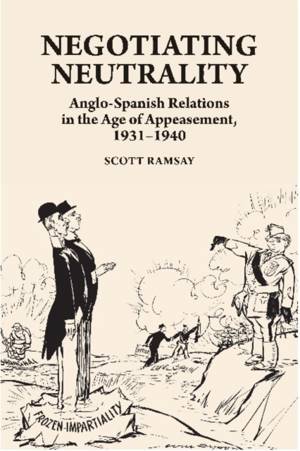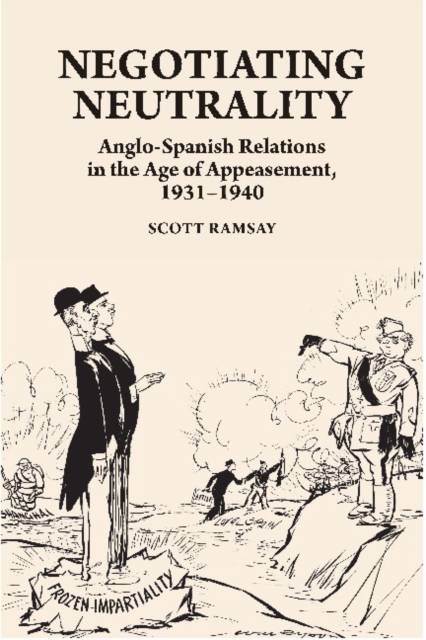
- Afhalen na 1 uur in een winkel met voorraad
- Gratis thuislevering in België vanaf € 30
- Ruim aanbod met 7 miljoen producten
- Afhalen na 1 uur in een winkel met voorraad
- Gratis thuislevering in België vanaf € 30
- Ruim aanbod met 7 miljoen producten
Zoeken
€ 132,95
+ 265 punten
Omschrijving
The British government's policy of non-intervention in response to the outbreak of the Spanish Civil War sought primarily to prevent the conflict escalating into a wider European war but also to ensure that it could maintain or establish cordial relations with whichever side emerged victorious. Due to General Franco's military successes, the support he received from Fascist Italy and Nazi Germany, and the geostrategic importance of the Iberian Peninsula in Britain's Mediterranean strategy, non-intervention evolved into a policy of appeasing Franco. This sustained strategic programme remained in place beyond the Civil War and throughout the Second World War. It aimed to drive a wedge between Franco and the Axis Powers to prevent Spain's incorporation into the Rome-Berlin Axis and thereby ensure the neutrality of the Iberian Peninsula. The British government's diplomatic recognition of Franco and simultaneous abandonment of the Spanish Republic in February 1939 formed a concession comparable to British policy towards Abyssinia and Czechoslovakia. Negotiating Neutrality uses appeasement as an analytical framework to show how appeasement policies alter power dynamics in diplomatic relationships. As a beneficiary of appeasement, Franco, like Hitler and Mussolini, intuitively understood how to use this policy to his regimes advantage and it formed an important part of his development as a statesman alongside his German and Italian counterparts. For its part, the British government increasingly encountered difficulties when trying to re-assert itself as the dominant power in Anglo-Spanish relations. In this sense, the author challenges the dominant view within the existing historiography that British policy makers harboured ideological prejudices towards the Spanish Republic, or sympathy for the military rebels, and allowed these to cloud their judgement when formulating a policy towards the Civil War to show that Franco's victory was far from the preferred outcome for the British government. Published in association with the Canada Blanch Centre for Contemporary Spanish Studies, LSE.
Specificaties
Betrokkenen
- Auteur(s):
- Uitgeverij:
Inhoud
- Aantal bladzijden:
- 256
- Taal:
- Engels
- Reeks:
Eigenschappen
- Productcode (EAN):
- 9781789761160
- Verschijningsdatum:
- 12/01/2021
- Uitvoering:
- Hardcover
- Formaat:
- Genaaid
- Afmetingen:
- 155 mm x 224 mm
- Gewicht:
- 476 g

Alleen bij Standaard Boekhandel
+ 265 punten op je klantenkaart van Standaard Boekhandel
Beoordelingen
We publiceren alleen reviews die voldoen aan de voorwaarden voor reviews. Bekijk onze voorwaarden voor reviews.








